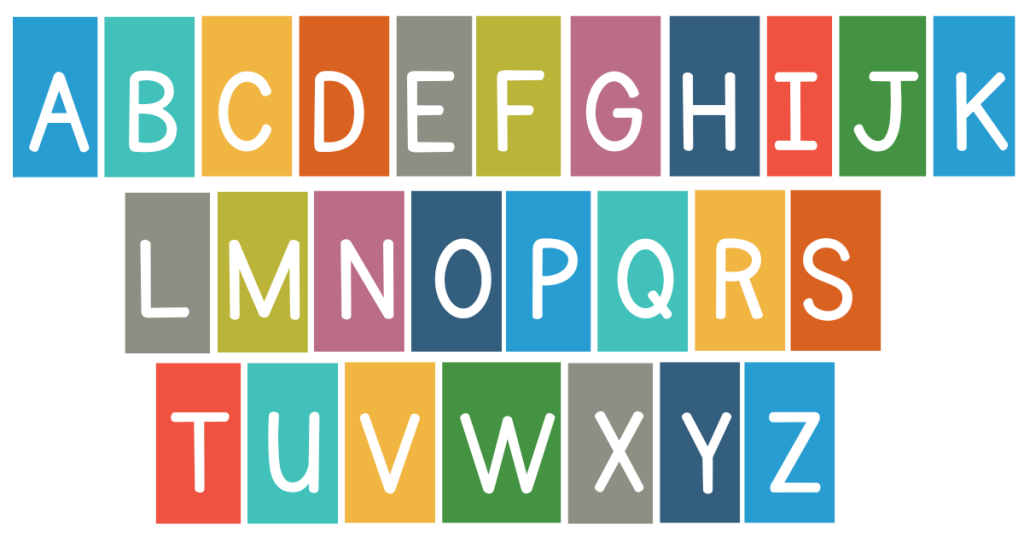Discovering Letters: Engaging Activities for Teaching Letter Recognition to Children
Find inspiration for fun and engaging letter recognition activities to do with your little one.

Learning to recognize letters is an essential skill for preschoolers as it forms the foundation for their future literacy development. Easy and entertaining activities and games are a great way to introduce them to the world of letters and help them develop their recognition skills.
In this blog, we will share some fun hands-on letter recognition activities you can do with your preschooler at home or in the classroom. These activities will help your child identify letters, both uppercase, and lowercase, and distinguish them from each other and individually among a group of other letters. These activities will spark your preschooler’s curiosity and help them build their letter-recognition skills while having a blast!
Making Letter Recognition Fun: Creative Ideas for Parents and Teachers
Young children love engaging in entertaining hands-on activities and games. The activities below are a great way for children to bond with parents, siblings, and friends and provide meaningful learning experiences. Check out the activities below to get inspired by the many ways to make learning letter recognition an enjoyable experience for young children.
Alphabet Bingo

Create or print alphabet bingo cards with letters, and have your child or student identify and match them as they are called out.
This is also a great way to help children practice their letter sounds. Instead of calling out the letter name, you would call out a word or show a picture starting with the sound of the letter, such as ‘apple’ and your child or student would need to look on their bingo board for the letter ‘Aa’.
I Spy Alphabet Letters Sensory Bottle

Sensory bottles can be a great calming activity.
I Spy Sensory bottles are a great way to engage children with practicing letter recognition. As they turn and shake the bottles, they can search for specific letters that are being worked on or try to spot the letters in their name.
Note: Small items can be a choking hazard, so ensure the cap to your bottle is strongly sealed, and do not leave your child unattended.
Letter Boxes – An Alphabet Movement Game
Looking for an engaging activity that will help your little one burn off some of their energy while also learning valuable skills? Then, this activity is a great one to try. Not only will it help them burn off some of that boundless energy, but it will also help them develop their gross motor skills and improve their letter recognition abilities all at once.
How to Play:
Integrating gross motor skills with literacy skills is a heavenly match!
Ox & Owl Literacy
Alphabet Memory Game

Help your little learner practice matching letters of the alphabet through a game of memory where the person with the most matches is the winner.
Memory is a great game for so many different learning subjects and also builds important cognitive skills like spatial awareness and focus, while also helping teach social skills, such as turn-taking, patience, and sportsmanship.
Letter Shape Puzzles

Alphabet letter puzzles are a fun hands-on way to learn about letter shapes and names. They also are an excellent tool to help children build their ability to discriminate different letters apart from each other.
Alphabet Scavenger Hunt

Create a scavenger hunt where your child can cross off or circle letters as he/she finds them. This can be done while doing life activities, like unloading groceries and searching the food labels for letters or you can choose to hide letters around a room and have your child search for them.
Literacy Scavenger Hunts
Get the bundle of 3 FREE language and literacy-building scavenger hunts, from our post on ideas for different types of scavenger hunts for kids.
Includes:
1. Compound Word Nature Scavenger Hunt
2. Indoor Descriptive Words Scavenger Hunt
3. Alphabet Letter-Sound A-Z Scavenger Hunt
Keyboard Letter Find

Little children love pressing buttons of all kinds so here’s an activity that lets them push buttons, introduces the layout of letters on a keyboard, and has them practicing letter recognition skills all at the same time!
Your little one will be excited for a chance to ‘play’ with ‘grown-up’ technology and you can rest easy because you’re not giving them the type of screen time that can negatively impact their development.
Bathtime Foam Letters

Bathtime can be a great opportunity to incorporate some letter recognition activities. Throw in some foam letters from your child’s name and have them paste them up on the tile wall and say what letters they are.
Then build their fine motor skills by using syringes to squirt water at the letters you call out until they slid down the wall and back into the tub.
Alphabet Go-Fish

Use two sets of alphabet cards. Select some of the letters to work on, depending on which letters you want your child or student to focus on and also depending on the number of players.
Play a round of Go-Fish and see who ends up getting the most matches.
Magic Letters

Write out letters on a white piece of paper with a white crayon or wax. Next, have your little learner discover the hidden letters by colouring or water painting over the page with different colours.
Your little one will be delighted as they discover letters magically appearing on the paper.
The Dynamic Duo

Help your little learner identify beginning, middle, and end sounds using visual aids like Elkonin boxes. For example, draw three boxes and use small objects or counters to represent sounds in words.


Phonemic awareness is the key to unlocking the world of reading! It’s perfectly fine if some kids need a little extra time to get the hang of it. Make learning fun by tailoring activities to their developmental level and watching them grow step by step!
Uppercase and Lowercase Letter Matching Activities
Need some inspiration for ideas to help your child or student learn and practice recognizing, naming, and matching uppercase and lowercase letters? Check out these easy and fun ideas in the slideshow below!
Key OOliteracy Takeaways
Other Letter Knowledge Related Posts

Nurturing Little Minds, Sparking Big Dreams

I’m happy you’re here!
Hi, I’m Julie, the passionate creator of Ox & Owl Literacy. I enjoy empowering families and educators with wonderful resources to inspire fun, imaginative, and joyful learning opportunities for young kiddos. You’ll find lots of recommended books, reading resources, and creative learning activities on this site aiming to help children fall in love with language, books, reading, and the transformational power of stories.
























